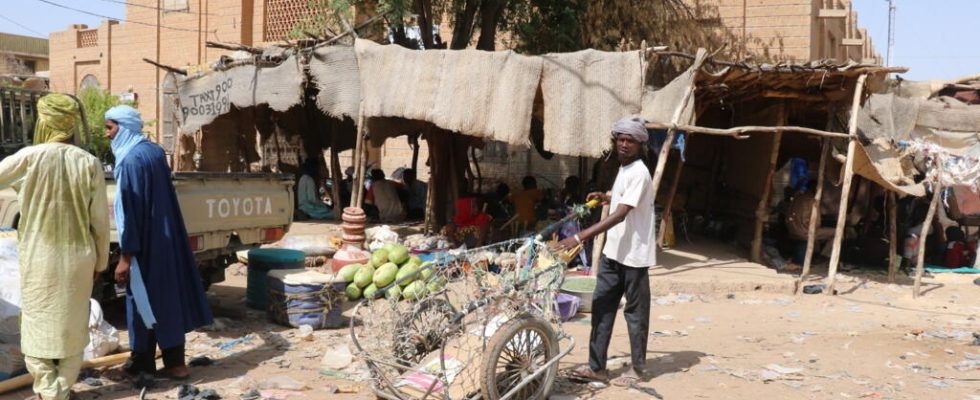Last December, the rebels of the Permanent Strategic Framework (CSP) decreed a blockade on Timbuktu and all major cities in northern Mali. A report from a joint initiative between humanitarian actors and the United Nations, published Thursday January 4, reveals the serious consequences of this blockade on the markets of Timbuktu.
2 mins
The city and region of Timbuktu have been under blockade since August 8. The Support Group for Islam and Muslims (Jnim, its Arabic acronym), linked to al-Qaeda, prevents the arrival of trucks coming in particular from Algeria, and also restricts travel on the roads linking Timbuktu to the south of country. Since last month, the CSP rebels have in turn imposed a blockade.
The Reach report, a joint initiative between humanitarian actors and the United Nations, published on January 4, is based on the testimonies of several dozen residents, elected officials, traders, wholesalers and transporters of Timbuktu. The interviews were carried out at the end of last November. It appears that 49% of businesses, almost half, are currently closed because of the blockade, that is to say insecurity and supply difficulties.
The logistical complications of circumventing the blockade – by using routes different from those usually taken, by combining road and river transport, or by replacing Algerian or Mauritanian suppliers with Malian suppliers – imply an increase in supply times and costs. . No shortage is to be deplored, but the products available are therefore fewer and more expensive. In particular flour, sugar, tea or even pasta. The supply of medicines is also affected.
Read alsoMali: Timbuktu still under jihadist blockade, the army continues its operations in the region
The report points to an explosion in the prices of non-food goods and construction materials, which increased by 83% and 67% respectively. In addition to the markets in the city of Timbuktu, rural markets are particularly affected.
In this context, and while the Malian transitional authorities still officially deny the existence of this blockade, the army imposes a nighttime curfew, to better secure the populations. But economic players in Timbuktu deplore the consequences on their activities. Among the households interviewed, some finally explained that they had to give up food, reduced the quantities consumed or even the number of meals for adults to favor those for children.
